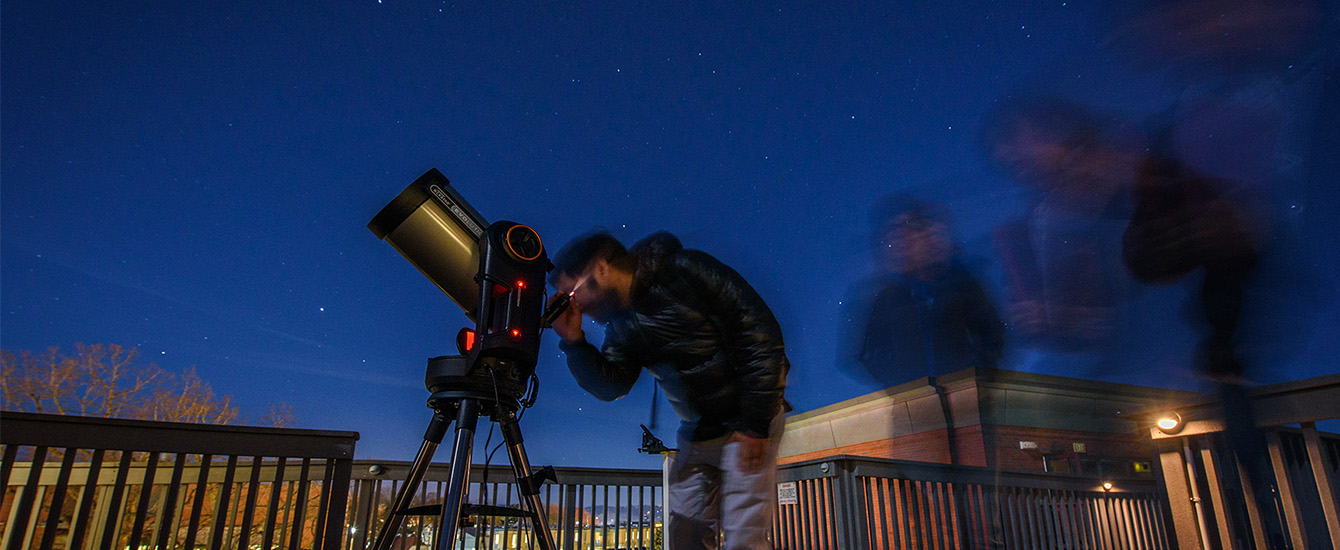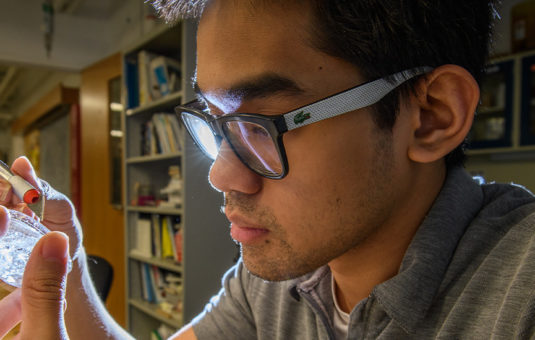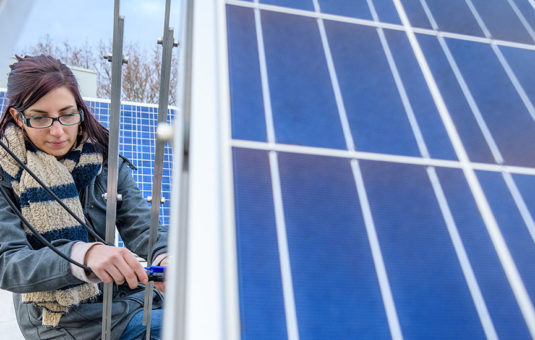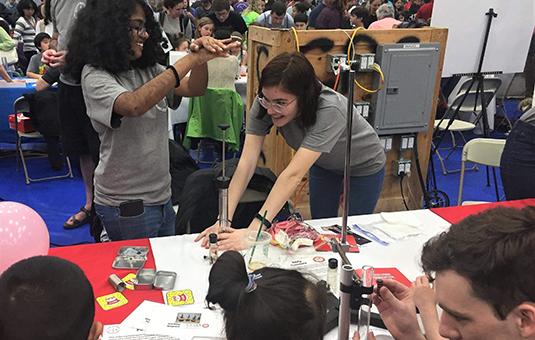‘Clark made me who I am’
Ronnie Cushnie ’24 engineers his future

Physics is the most fundamental of the sciences, yet has multiple applications across a wide range of fields. Our department offers personal, individualized instruction where you can pursue your interests and gain hands-on experience in one of our faculty’s internationally known research groups.
Along with a major and minor in physics, we offer a five-year engineering program, with the final two years of study completed at Columbia University.
If you’re excelling in our undergraduate program, you can apply for Clark’s Accelerated B.A./M.S. Program in physics, with a fifth-year scholarship.
Our doctoral program allows for advanced study in the classroom and in the lab.

In our small department, undergraduate students conduct research alongside graduate students and faculty.

Graduates in STEM fields are in high demand, and that includes physics majors. Our alumni find fulfilling work in education, government, scientific research, and more.

Our community of undergraduate and graduate students connect with each other through clubs, events, and other activities.
Ronnie Cushnie ’24 engineers his future
Students put their skills to work, from State Street to Dana-Farber
Editor puts his stamp on journal’s look, breadth, and readership
Clark senior earns internship at Las Vegas Stagecraft Institute
There are currently no upcoming events scheduled, please check back at a later date.
Points of Pride
Math-Physics Building
Physics, Room 241
950 Main Street
Worcester, MA 01610
Notifications